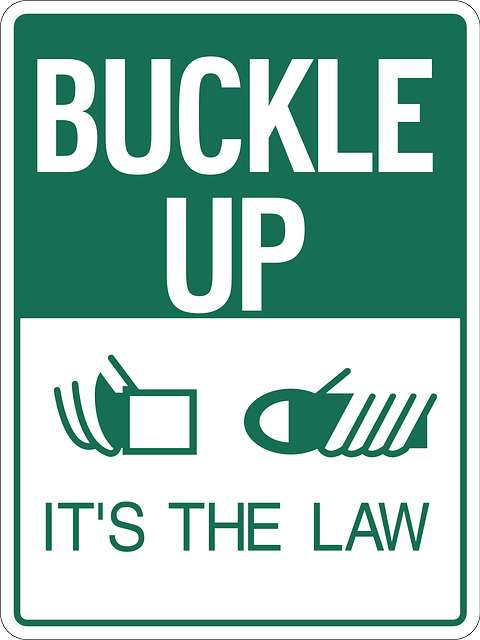Regulatory fraud laws protect industry integrity, enforcing compliance across finance, healthcare, environment, and consumer protection sectors. Plea bargaining is a critical aspect of criminal defense strategy, offering benefits like reduced charges, cost savings, and control over outcomes for defendants, especially in white-collar crimes. However, critics raise concerns about false pleas and coercion. Balancing these factors is crucial for maintaining fairness and efficiency in fraud cases, impacting both the legal system's integrity and defense strategies. Understanding plea bargaining's multifaceted benefits of plea bargaining in criminal cases is essential for navigating complex regulatory fraud cases successfully.
Regulatory fraud laws are essential tools for maintaining integrity within businesses and governments. This article delves into the intricate world of these laws, providing a comprehensive overview of key definitions, scope, and practical implications. We explore the strategic role of plea bargaining in fraud cases, highlighting its pros and cons. Furthermore, we discuss the benefits of plea bargaining in enhancing justice and efficiency, supported by case studies and best practices. Understanding these dynamics is crucial for navigating the legal landscape.
- Understanding Regulatory Fraud Laws: Key Definitions and Scope
- The Role of Plea Bargaining in Fraud Cases: Pros and Cons
- Benefits of Plea Bargaining: Enhancing Justice and Efficiency
- Navigating the Legal Landscape: Case Studies and Best Practices
Understanding Regulatory Fraud Laws: Key Definitions and Scope
Regulatory fraud laws are designed to protect the integrity of various industries and ensure compliance with specific rules and regulations. Understanding these laws begins with defining key terms. Fraud, in its simplest form, refers to the deliberate deception or manipulation of information for personal gain. In the context of regulatory fraud, it involves misrepresenting facts or concealing material information to obtain an unfair advantage, especially when dealing with government agencies or industry-specific bodies.
The scope of these laws is vast, covering a wide range of activities across different sectors. It includes financial institutions, healthcare providers, environmental regulations, consumer protection, and more. One notable aspect often discussed in the realm of regulatory fraud is the role of plea bargaining in criminal cases. This legal mechanism allows defendants to avoid indictment by pleading guilty to a lesser charge, thereby providing potential benefits such as reduced sentences or avoiding prosecution altogether. Across the country, general criminal defense attorneys frequently utilize this strategy as part of their case management, ensuring clients receive fair representation while navigating complex regulatory frameworks.
The Role of Plea Bargaining in Fraud Cases: Pros and Cons
Plea bargaining plays a significant role in fraud cases, offering both advantages and disadvantages for all parties involved. When accused individuals agree to plead guilty in exchange for reduced charges or sentencing, it can streamline the legal process. This approach has several benefits from a defense perspective, particularly in white-collar crime scenarios. For instance, plea bargaining allows for more control over the outcome, enabling attorneys to negotiate terms that may better protect their clients’ respective business interests in the long term.
However, critics argue that this practice can undermine the integrity of the justice system, as it may encourage guilty pleas from individuals who are not truly remorseful. Moreover, the potential for coercion or pressure on defendants to accept plea deals, especially in complex fraud cases, raises concerns. Balancing the benefits of plea bargaining, such as cost savings and quicker resolutions, against its drawbacks is essential for ensuring fairness in the administration of justice while facilitating effective white collar defense strategies.
Benefits of Plea Bargaining: Enhancing Justice and Efficiency
Plea bargaining is a critical component of criminal justice systems worldwide, offering significant advantages in terms of both justice and efficiency. This process allows for the resolution of criminal cases outside of trial, enabling courts to manage their overwhelming caseloads more effectively. By negotiating plea agreements, prosecutors can secure guilty pleas from defendants, reducing the need for lengthy and resource-intensive trials.
The benefits extend beyond court management; plea bargaining plays a pivotal role in ensuring justice is served. It provides an opportunity for defendants to take responsibility for their actions and avoid the often harsher sentences that might result from a conviction after trial. This approach can lead to more realistic punishments tailored to individual cases, fostering a sense of fairness. Furthermore, plea agreements can facilitate winning challenging defense verdicts, especially in high-stakes cases, where an unprecedented track record of successful negotiations can be a testament to the benefits of this strategic tool.
Navigating the Legal Landscape: Case Studies and Best Practices
Navigating the legal landscape of regulatory fraud cases involves understanding a complex web of laws and precedents. Case studies offer valuable insights into successful strategies employed by defense attorneys. One notable approach, often discussed in legal circles, is the benefits of plea bargaining in criminal cases. This strategy involves defendants pleading guilty to reduced charges or receiving more favorable sentencing terms in exchange for their cooperation with prosecutors.
Across the country, various courts have embraced plea bargaining as a practical solution, leading to winning challenging defense verdicts. The practice not only streamlines legal proceedings but also diverts resources by potentially reducing trials and appeals. Moreover, it fosters collaboration between law enforcement, regulatory bodies, and both the philanthropic and political communities, ensuring more efficient and effective fraud prevention and prosecution strategies.
Regulatory fraud laws play a crucial role in upholding ethical standards within businesses and governments. By understanding the scope and definitions of these laws, we can effectively utilize plea bargaining as a tool to enhance justice and efficiency in criminal cases. The case studies presented highlight best practices for navigating complex legal landscapes, demonstrating that plea bargaining can be a game-changer in fostering a fair and swift resolution. Embracing the pros of plea bargaining, while mitigating its cons, ensures that these laws are not just words on paper but powerful instruments for real change, leaving a lasting impact on fraud prevention and deterrence.






